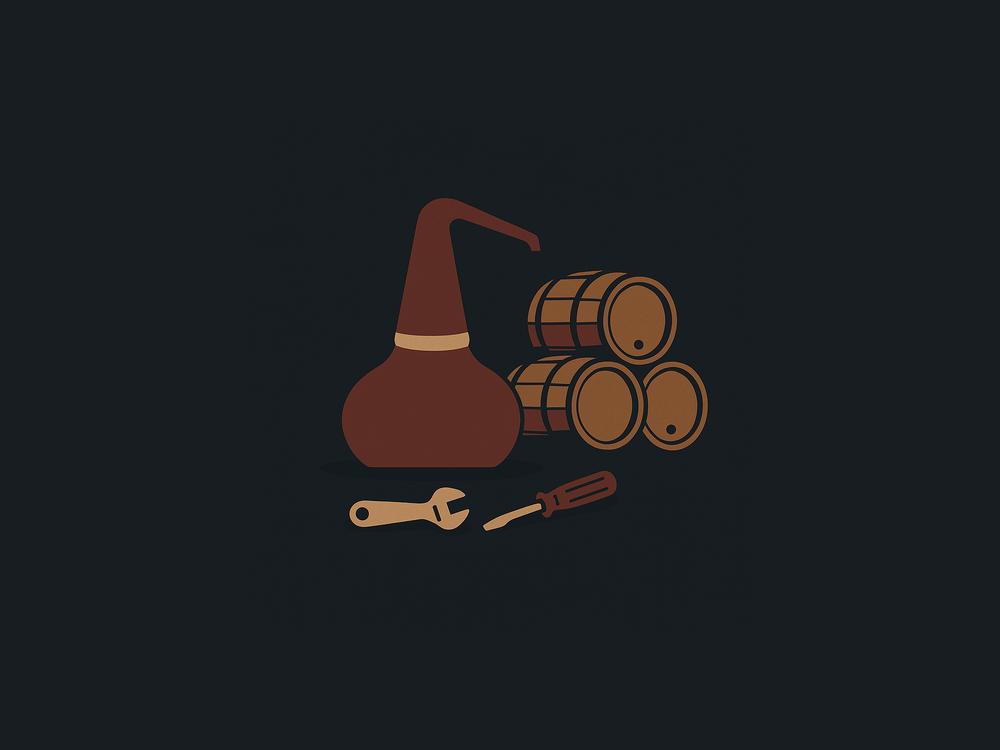Macallan Distillery Engineers Go On Strike

Published November 5, 2025 by John Fegan
Contents
Well, it appears there’s trouble brewing in the land of whisky. Not the kind you’d expect, mind you, where brawny Scotsmen with beards the size of small towns throw back a dram or two and start singing ballads. No, this is more of a bureaucratic affair. One where the engineers at Macallan, these days less a distillery than a liquid investment portfolio with caramel colouring, have decided to strike.
For most of their careers, the engineers at Edrington’s Speyside distilleries had relied on a quiet understanding with the universe. It was the sort of arrangement that worked like clockwork. If the machinery didn’t explode in a fiery symphony of metal and whisky, and the whisky didn’t decide it was too good for its casks and started misbehaving, then the universe would let the engineers get on with their job. It was far from a perfect system, but it worked.
Then, as always happens, someone in the corporate stratosphere had a bright idea. A bright, dull idea. “Let’s change the rotas!” they said, probably with the sort of enthusiasm only achievable when one is sitting in an office chair on wheels, rolling triumphantly across a bland carpet. “We’ll make them work more for less,” they whispered to themselves, forgetting that engineers, like whisky, require a certain level of respect and attention, or else the entire operation goes a bit sour.
And so, with the predictability of an unexpected storm on an otherwise sunny day in Scotland, a very different kind of trouble began to brew; the sort that can only be settled with a union, industrial action, and a very large bottle of something strong. In an act of solidarity so perfectly executed that even the laws of physics paused to check their calculations, the workers voted to strike with the kind of unanimous decision that would have sent shivers down the spines of anyone who’s ever witnessed a group of humans trying to agree on anything.
On the 10th of November, the workers downed tools, and in a demonstration of collective defiance that could only be described as beautifully inevitable, they followed up with twenty-two more days of strikes over the coming months.
After all, these aren’t just any workers, they’re the backbone of a business that relies on precision and skill. The rotas? They were the very rhythms of their lives.
The Rota That Offended Reality
Management, in a fit of optimism not backed by evidence, introduced a shift plan that assumed skilled workers could be stretched like dough without consequences. The engineers, being both real and conscious, disagreed. They offered alternatives that involved things like fairness, sleep, and continued existence of their social lives. Unsurprisingly, these suggestions were rejected. Possibly because they were, quite simply, too practical and didn’t come with enough corporate flair.
According to GMB Scotland organiser Lesley-Anne MacAskill, the vote to strike demonstrated “how badly managers have handled this issue.” Which, to put it another way, was the corporate equivalent of saying the biscuits are gone, the coffee’s gone cold, and if management had any sense, they’d get over themselves.
Why This Is Not Just a Mild Workplace Sulk
Whisky does not magically distil itself. The stills do not politely maintain the correct temperature on their own. The machinery is not sentient enough to say, “Don’t worry, I’ll handle it, go enjoy your pay cut.” These twelve engineers are the difference between smooth production and headlines containing the word “incident.” Without them, the entire operation would be a lot less “well-oiled machine” and a lot more “cautionary tale.”
Whisky barrels are currently the calmest beings involved. They are aging gracefully in the warehouses, quietly absorbing flavour, and wondering why humans insist on making everything so dramatic. Really, it’s just whisky. What’s the big deal?
Status Report: Tension Aging Faster Than Whisky
- Strike begins November 10.
- Additional action spread across winter like frost no one asked for.
- Negotiations technically exist, much like the theoretical possibility of dragons, or any meeting of minds between a manager and a reasonable suggestion.
- Management continues to appear confident, which is one possible response when all alternatives involve admitting mistakes.
Atmospheric Conditions
Workers: united, calm, and powered by the unstoppable force of being thoroughly done with nonsense.
Management: attempting to look decisive while quietly googling “how long can a distillery run on goodwill,” which is probably not in the training manual.
Time: ticking forward, unimpressed by anyone’s attempts to avoid resolving anything, and, as always, completely indifferent to the outcome.
Whisky: judging everyone.
If Nothing Changes
Production slows down. The schedules? They unravel like a poorly-knit jumper, with little bits of string everywhere. At least one executive will attempt to reassure investors by spouting phrases like “temporary difficulty,” as though that was something you could sell for a profit. Nearby, an accountant will quietly develop an eye twitch.
Eventually, someone will realise the obvious: skilled labour is not optional, and rotas can’t be improved simply by wishing for them to work better. A deal will be made, the engineers will return, and the machinery will resume its usual work as though nothing had ever gone wrong.
Until then, the stills will wait in perfect silence, the barrels will continue aging as though they were the only things in the universe that have their act together, and the universe will watch with the kind of tired indifference that comes from having witnessed this exact scenario unfold in every industry since the invention of money.
The whisky will be fine. The humans are another matter.

